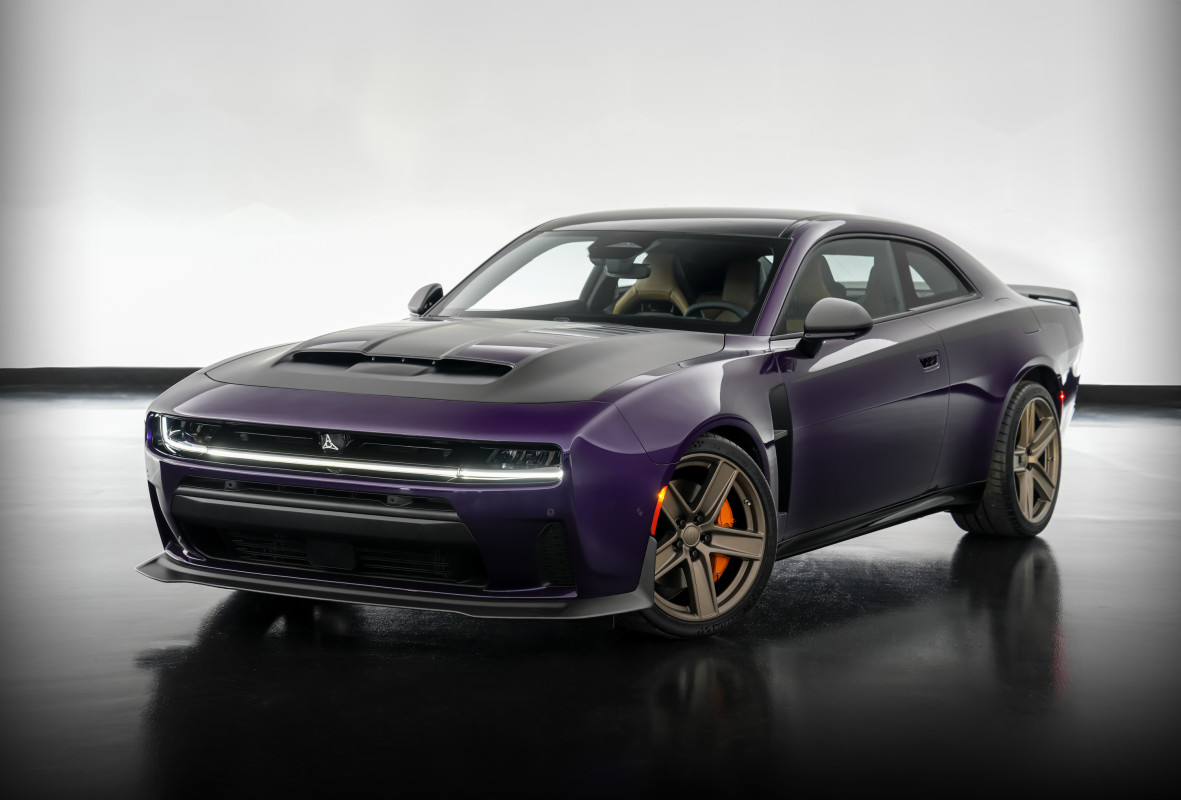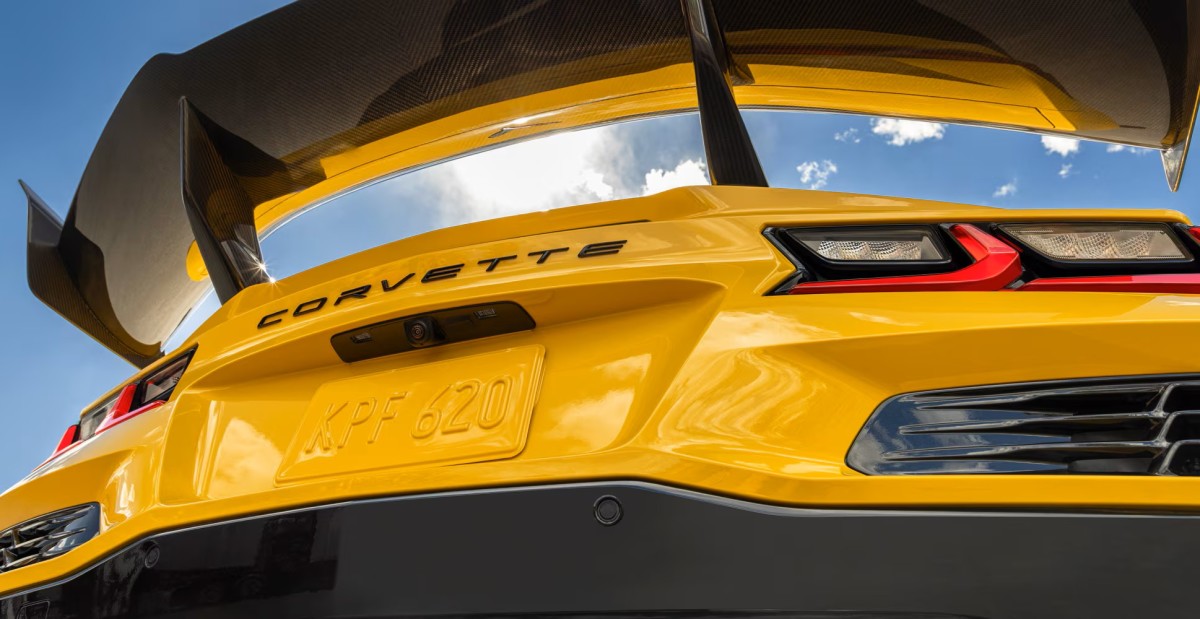The Toyota Corolla Concept is a Revolutionary Threat to Conventional Sedans, Challenging the Status Quo Like David vs. Goliath in the Automotive World, and It’s Time to Choose Sides in This Battle for the Future of Driving.
The Toyota Corolla has long been synonymous with reliability, affordability, and practicality. For decades, it has served as a staple in the automotive market, appealing to a broad audience that values these traits over flamboyance. However, the recent unveiling of the Toyota Corolla Concept at the Japan Mobility Show signals a dramatic shift in the brand’s approach. This concept car is not just a redesign; it represents a bold reimagining of what a sedan can be, positioning itself as a direct challenge to competitors like the Honda Civic and Volkswagen Jetta.
The Corolla Concept breaks away from the traditional design language that has characterized the model for years. Its exterior is strikingly angular, with aggressive lines and a low, short hood that gives it a sporty appearance. The large windscreen and slim A- and B-pillars enhance the car’s modern aesthetic, while the fastback-like rear profile adds a touch of sophistication. The broad, slim taillight bar that wraps around the body is a design element that sets it apart from its predecessors, making it clear that this is not your average Corolla.
Inside, the Corolla Concept continues to impress with its innovative design. The floating dashboard structure creates a sense of space and modernity, while the center island with a gear selector and closely packed display screens around the steering wheel offer a tech-savvy driving experience. The use of light, airy materials and soft ambient lighting contributes to an inviting atmosphere, making it a stark contrast to the utilitarian interiors of many sedans on the market today. This interior design is not just about aesthetics; it reflects a shift in consumer expectations, where technology and comfort are paramount.
The multi-powertrain strategy announced by Toyota further emphasizes the brand’s commitment to versatility and market adaptability. While the concept car appears to lean towards an electric future, Toyota has made it clear that gas, hybrid, and plug-in hybrid options will also be available. This approach is particularly relevant in a global market where consumer preferences vary widely. In regions where electric infrastructure is lacking, traditional gas-powered models will still hold significant appeal, while hybrid options cater to environmentally conscious consumers in more developed markets.
The Corolla’s evolution comes at a crucial time for the sedan segment, which has seen a decline in popularity due to the rise of crossovers and SUVs. However, the Corolla’s history as one of the best-selling cars in the world cannot be overlooked. With cumulative sales surpassing 50 million units across 12 generations, the Corolla has proven its ability to adapt and thrive in changing market conditions. The introduction of the Corolla Concept suggests that Toyota is not content to rest on its laurels; instead, it aims to redefine the sedan category entirely.
As the automotive industry increasingly shifts towards electrification and advanced technology, the Corolla Concept stands out as a beacon of innovation. It challenges the notion that sedans must be bland and uninspiring, offering a glimpse into a future where practicality and desirability coexist. Traditional rivals like the Honda Civic and Volkswagen Jetta have largely played it safe, sticking to familiar designs and features that appeal to their established customer bases. In contrast, the Corolla Concept dares to be different, positioning itself as a desirable option for consumers who want more than just a sensible car.
The anticipated arrival of a new generation of the Corolla by 2027, or possibly sooner, raises questions about the future of the sedan market. If the production model reflects the boldness of the concept, it could very well disrupt the status quo. The Corolla may no longer be seen merely as a practical choice but as a vehicle that excites and inspires. This transformation could attract a new demographic of buyers who prioritize style and innovation alongside reliability.
In summary, the Toyota Corolla Concept is not just a new car; it is a statement about the future of the automotive industry. It challenges the traditional perceptions of sedans and sets a new standard for what consumers can expect from this segment. As the competition braces for the impact of this revolutionary design, the automotive landscape may never be the same again. The Corolla’s journey from humble beginnings to a potential icon of modern design is a testament to Toyota’s commitment to innovation and its understanding of evolving consumer preferences. The best may indeed be yet to come for the Corolla, and the automotive world is watching closely.
Watch Out, Honda Civic
The humble Corolla nameplate has found itself attached to a few not-so-humble concepts over the last few weeks. First, we got an early look at the all-new Corolla Concept ahead of its debut at the Japan Mobility Show, before the lifted Corolla Cross Hybrid Nasu Edition was unveiled.
Both hinted at a much more exciting future for the best-selling car of all time, and now, the full reveal of the Corolla Concept has not changed that perception. It looks nothing like today’s Corolla, and the arresting exterior design is complemented by an interior dripping with just as much fresh thinking.
Related: From Humble Beginnings to Global Icon: The Toyota Corolla Story
A Corolla That Doesn’t Look Like a Corolla
Toyota Corolla Concept Toyota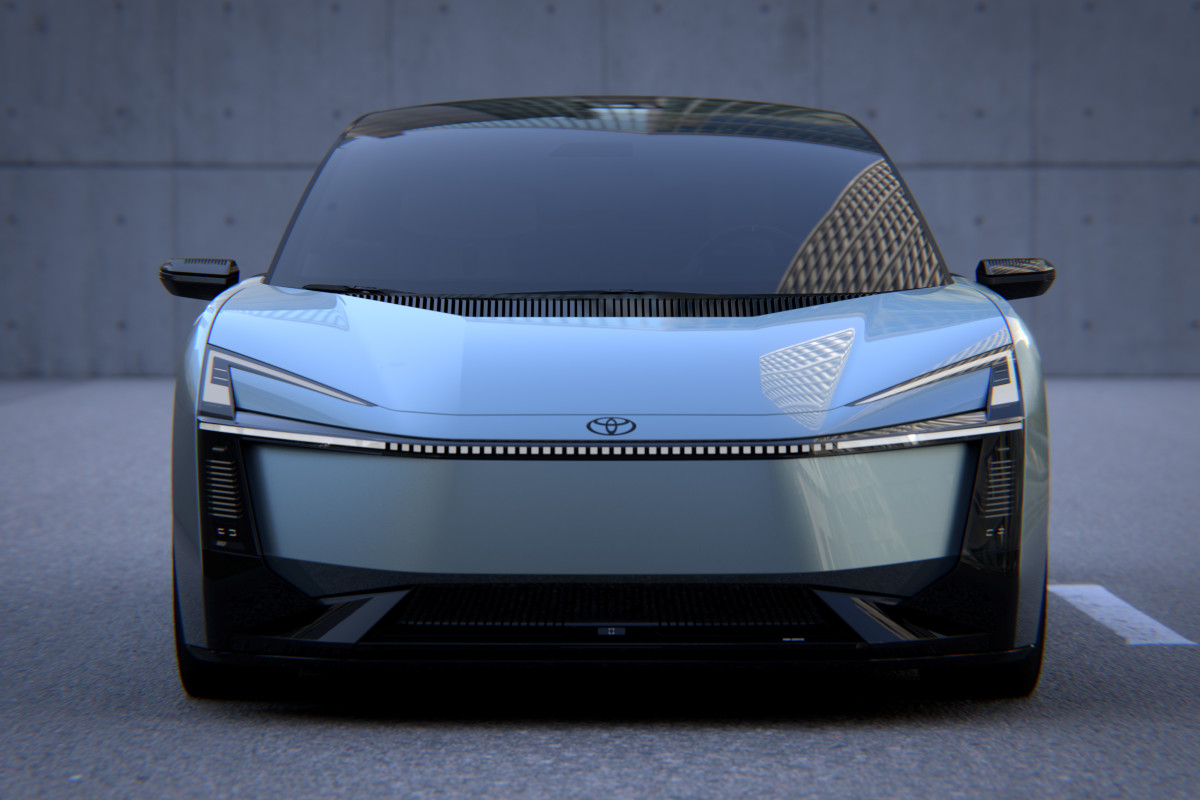
It doesn’t matter what angle you look at it from—this is no ordinary Corolla. It’s an exceptionally angular design, and the aggressive lighting flows with the exaggerated lines and angles of the body. The hood is low and short, and the windscreen appears particularly large as it sweeps into the black roof. By modern car design standards, the A- and B-pillars are shockingly slim. The way the beltline ascends from front to back is unique, and the rear is characterized by a fastback-like profile. A broad, slim taillight bar wraps around the body, and the Corolla script is the only indication that this is, in fact, a Corolla.
Toyota Corolla Concept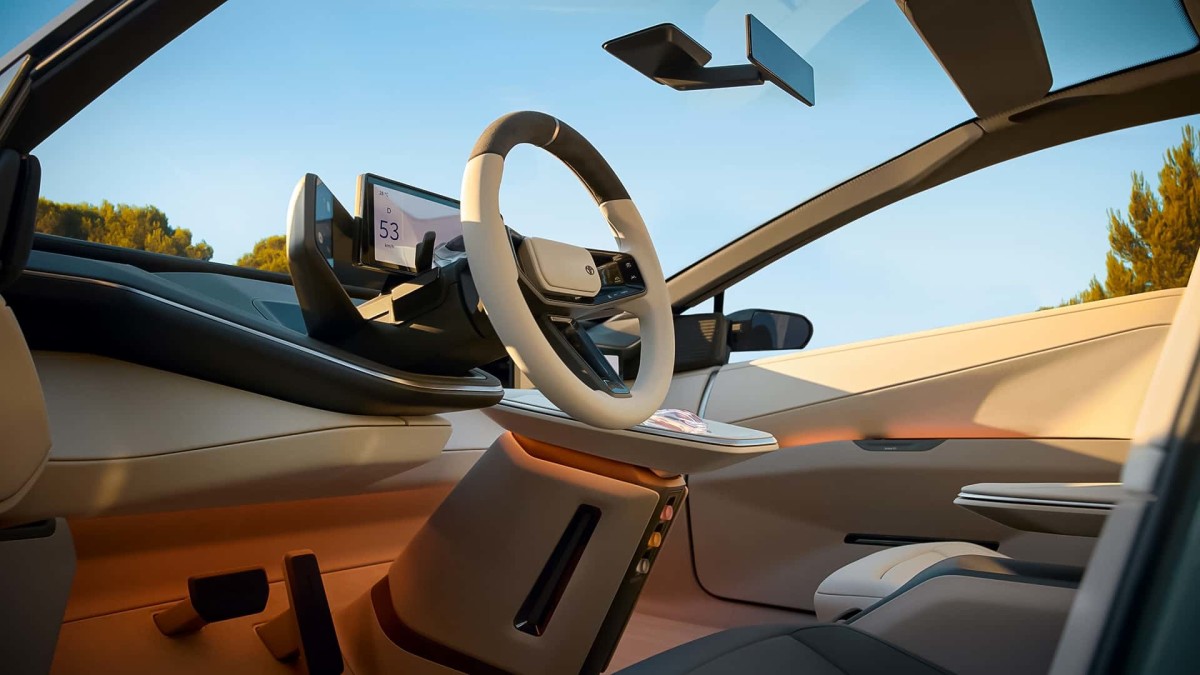
There’s more innovation inside, with a floating dashboard structure. There’s a center island with a gear selector, and the display screens are closely packed around the steering wheel. Toyota has used light, airy materials and soft ambient lighting lower down, and the floor appears flat, freeing up plenty of space. A passenger-side screen is also equipped.
We expect many elements to be toned down for production (assuming this previews an actual production model), but as it stands, the Corolla Concept is even more of a glow-up for the sedan than the new Prius was for the economical hybrid hatch.
Multiple Powertrains Expected
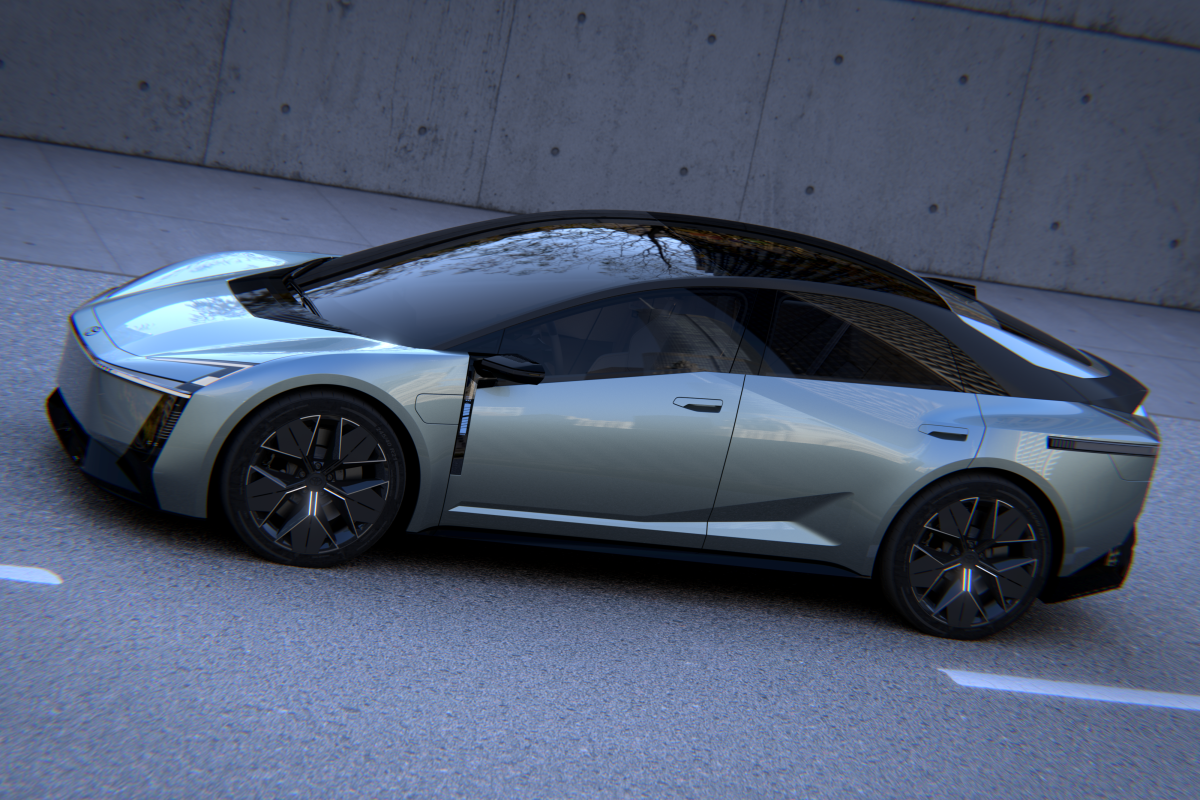
During Toyota’s presentation in Tokyo, the company touted a wide range of powertrain options for the Corolla. Although the concept looks like it’s electric, the company said that gas, hybrid, and plug-in hybrid powertrains are all planned, too.
No further technical details were shared, but the multi-powertrain strategy makes sense for a nameplate that’s sold in vastly different markets across the world. Gas-only Corollas still make a lot of sense in regions like Africa, and while Toyota is working towards a more robust EV lineup, its hybrids remain tremendously popular in regions like Europe and the United States.
Related: Toyota Says You’ve Been Misled—Most “Hybrids” Aren’t Really Hybrids
Why It Matters
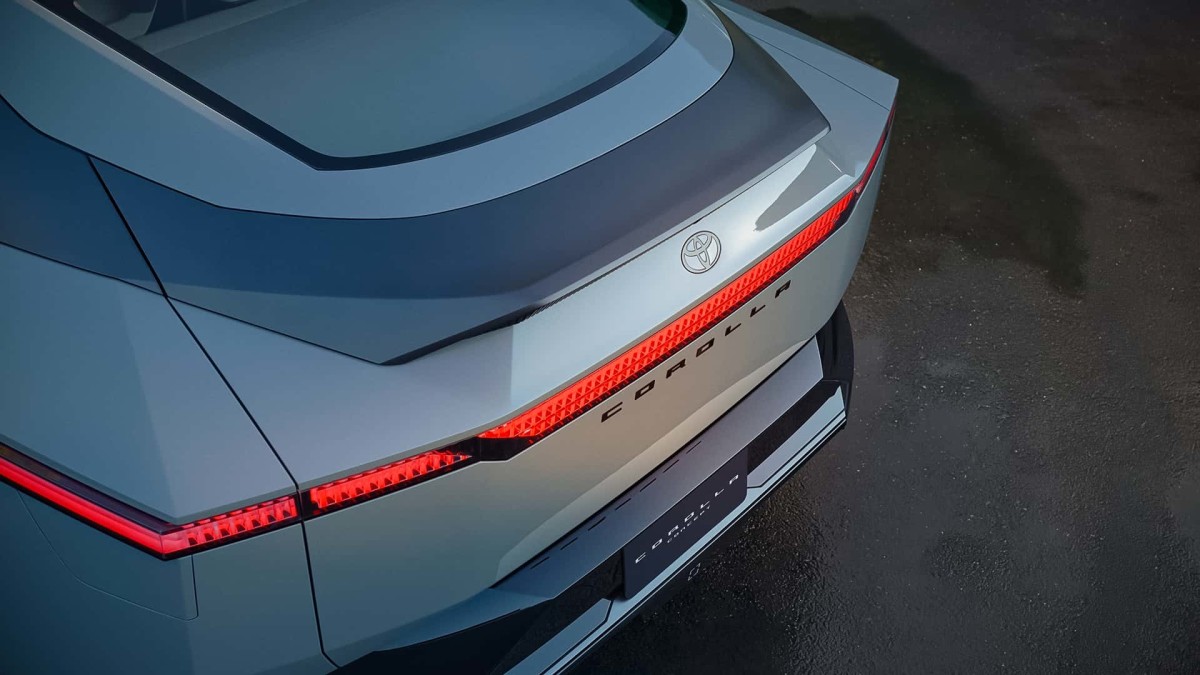
Toyota
An all-new generation of the Corolla is expected to arrive sometime in 2027, or possibly a bit earlier, as the current one has already been in production for eight long years.
If it’s anything like this concept, it will turn the small sedan segment on its head. Traditional rivals like the Honda Civic and Volkswagen Jetta still play it safe, but for the first time, the Corolla looks like a car you’d buy because it’s desirable, not purely because it’s sensible. Despite the rise of crossovers, the Corolla remains one of the best-selling sedans in the world, including in the United States.
Cumulative sales of the Corolla nameplate have surpassed 50 million units globally after 12 incredibly successful generations. It looks like the best of the Corolla is yet to come.


